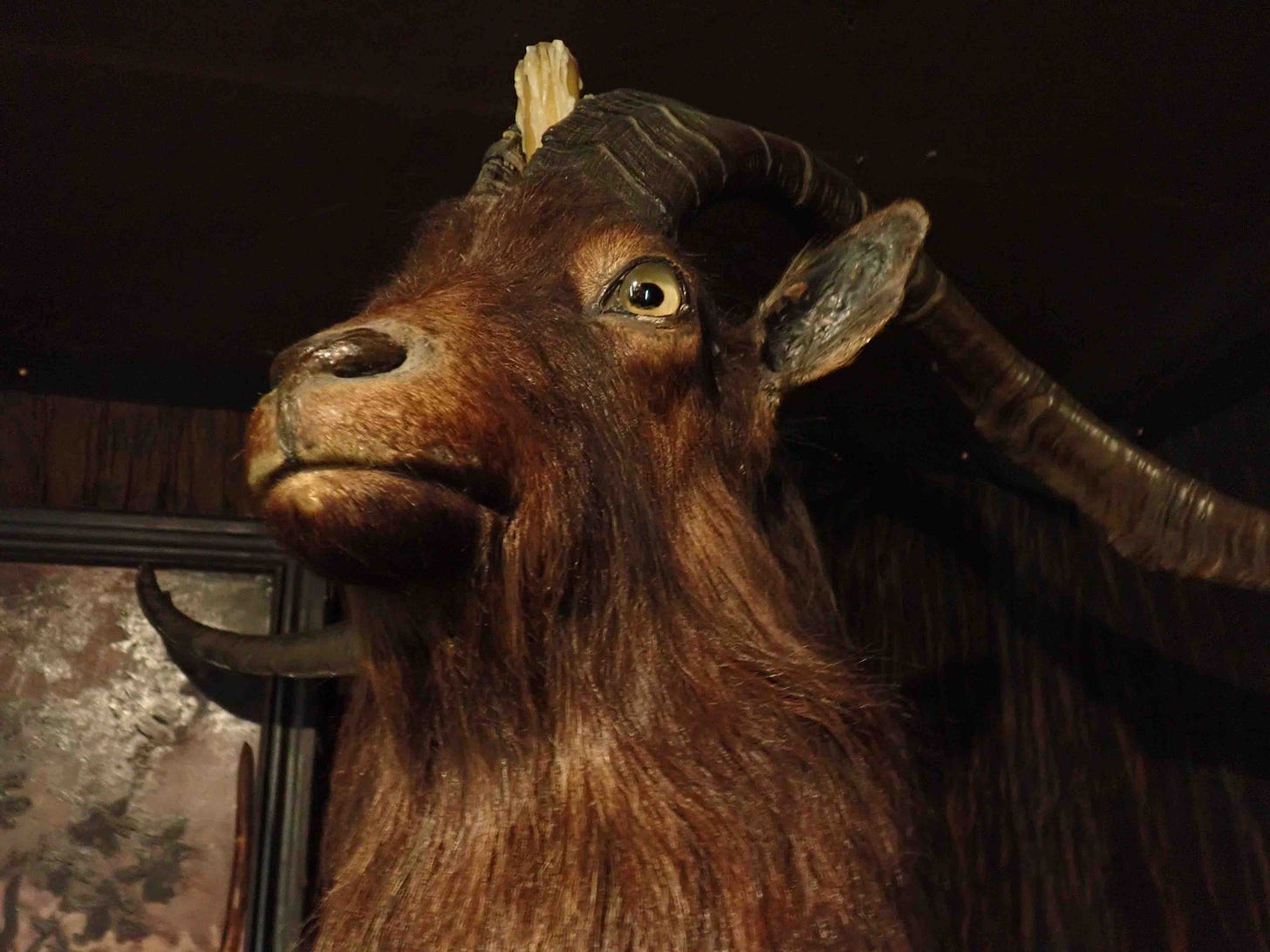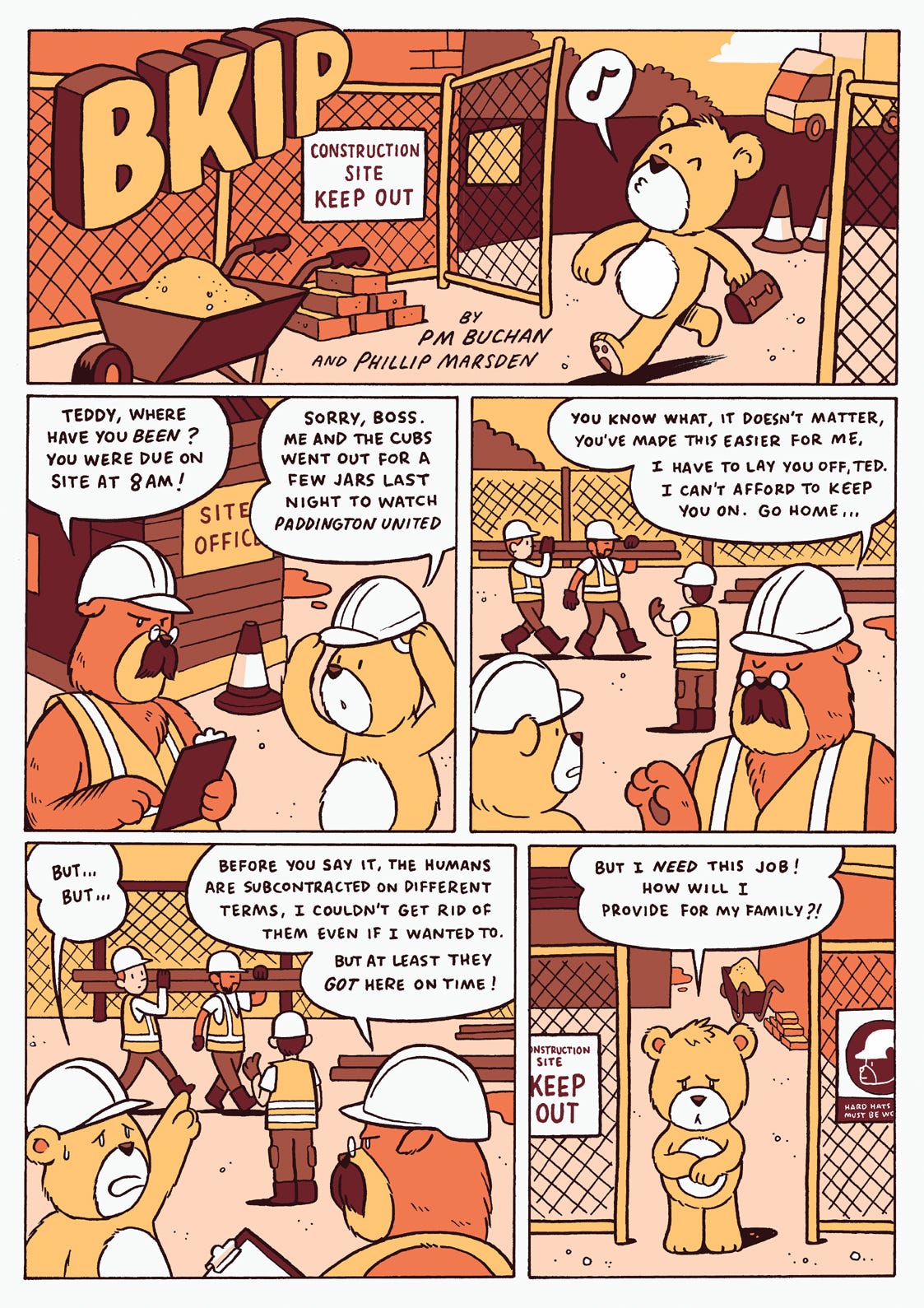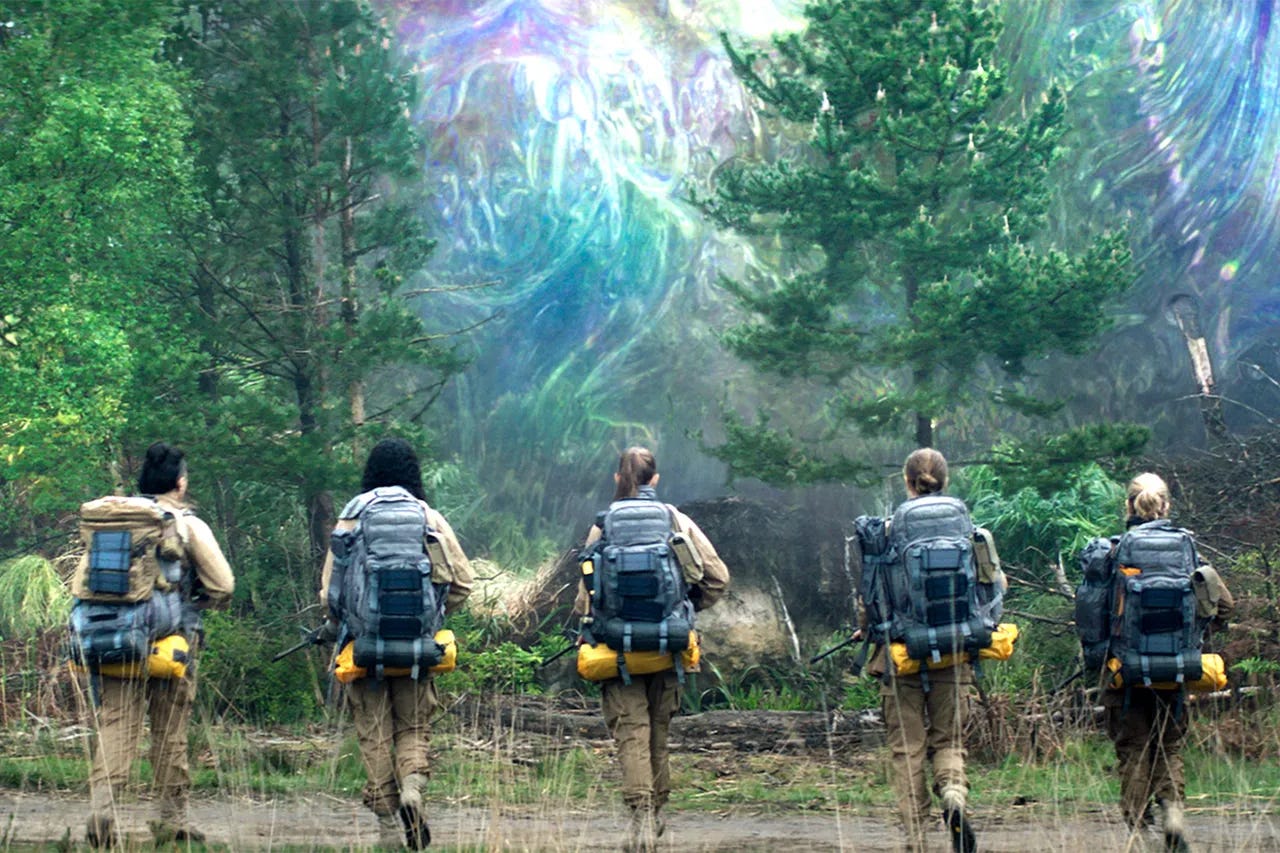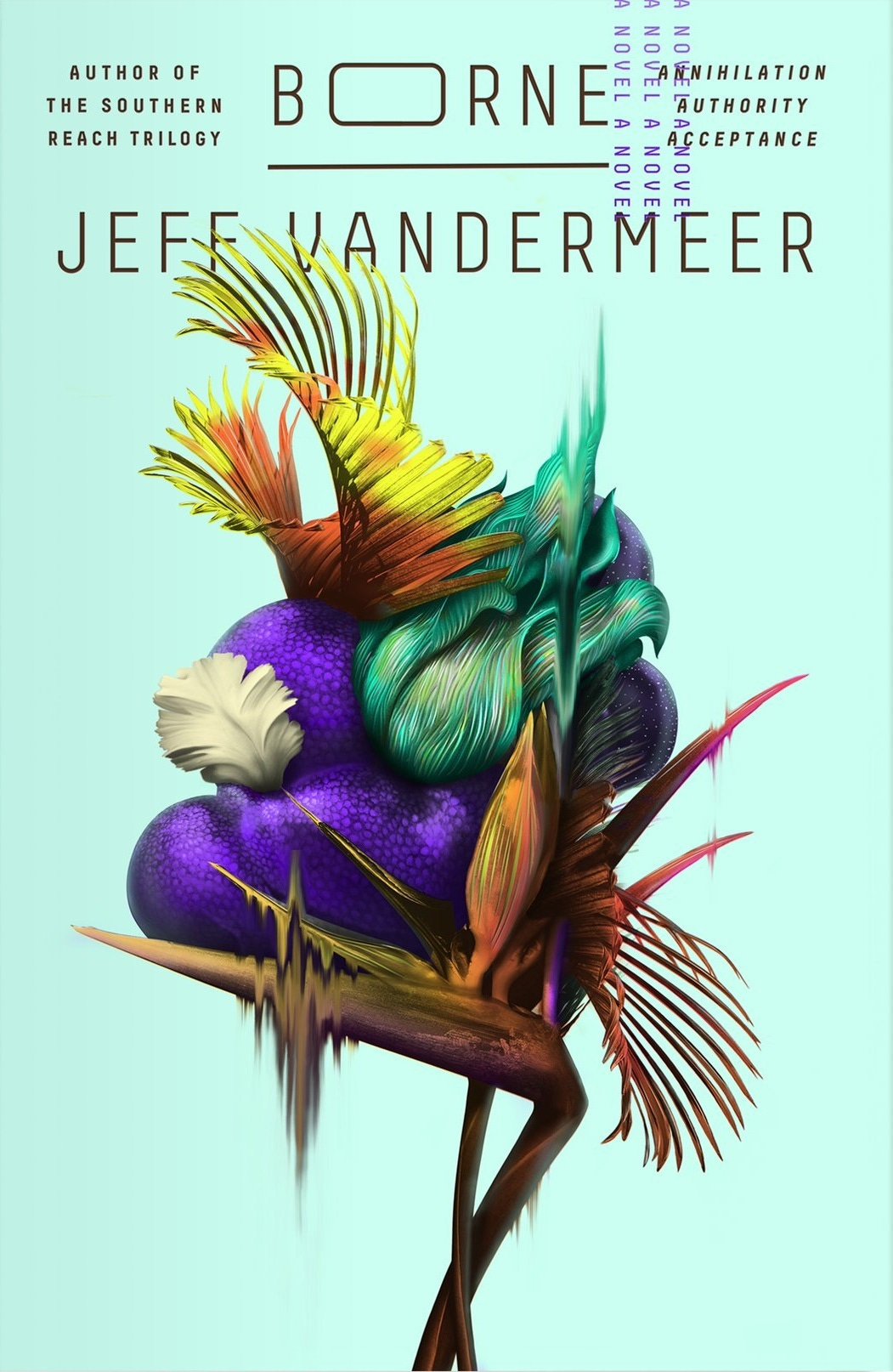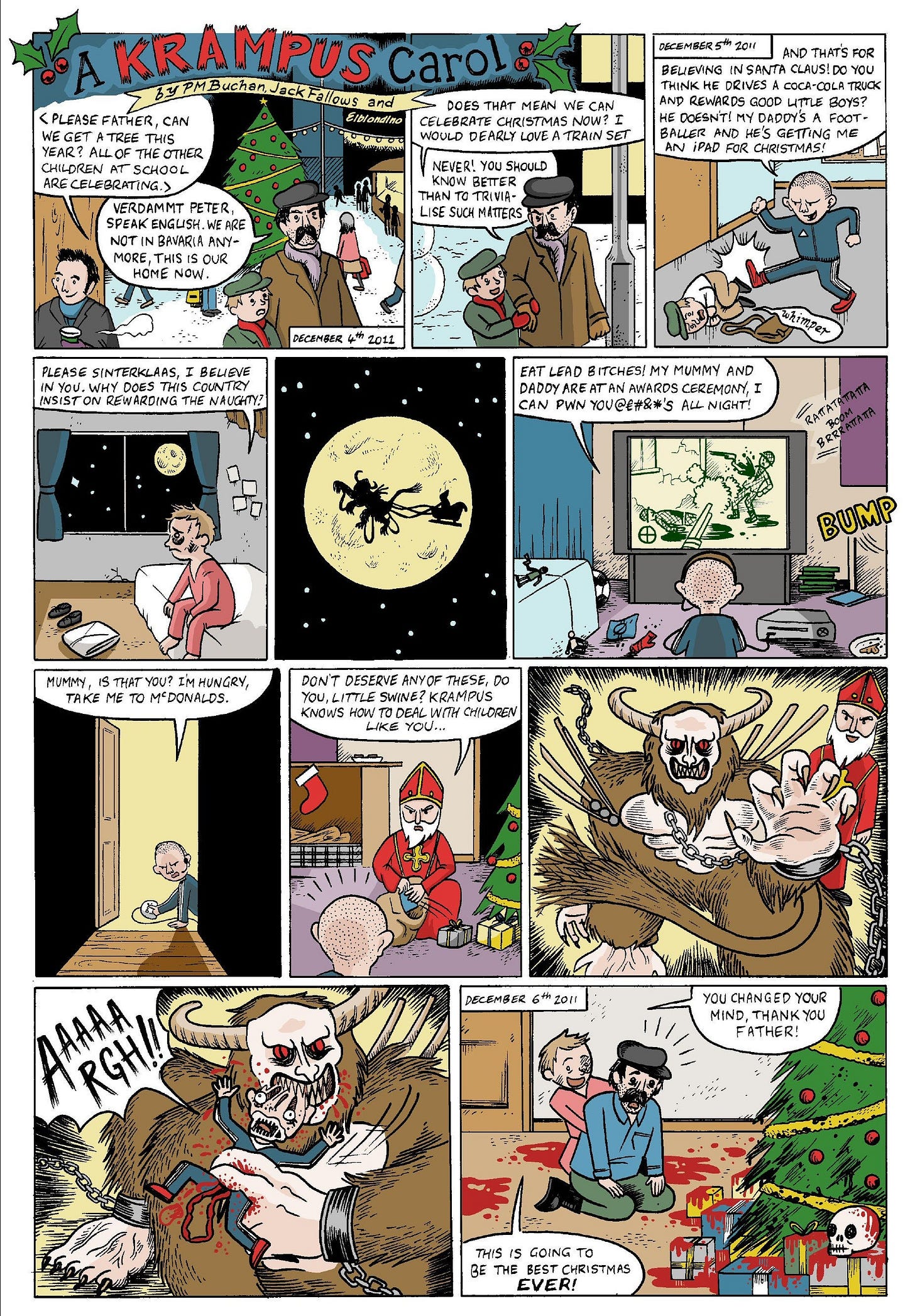💃🏻Dancing with witches 🌒
Elections + Christmas horror + obtuse nihilistic weirdness & a flying bear
This time in IF YOU GO AWAY, read on for news about Patrons’ Day at the Museum of Witchcraft and Magic, what I learned from the Brexit referendum and how it relates to this week’s world election news, a belated review of Jeff VanderMeer’s Borne, my recommendations for Christmas horror events in the UK, plus a plea for feedback from subscribers.
At the beginning of the summer I finished work on a novel that took several years’ worth of nights and weekends to complete, essentially relearning how to write prose after an extended period of focusing on scripts for comic-books. Doing justice to the story that was in my head meant a prolonged period of saying no to any unrelated opportunities and curtailing any additional journalism or criticism, to focus on getting better as a writer.
When I came up for air, the phone had stopped ringing and a lot of doors that were once open had closed. This is something that you don’t expect when you’re younger, that those great connections you’re making can take years to establish but will be much faster to forget that you exist.
While I’m querying my novel, with all the waiting that entails, I made a promise to myself that I would start saying yes to opportunities again. I want to get out of the house, meet other creative people, and experience more of what life has to offer. This felt like a reasonable commitment to make, but after two months of it I am exhausted!
Since the last edition of IF YOU GO AWAY I spent a weekend in north Wales and Manchester, visiting family and friends, playing Scrawl (my favourite board game for adults); ferried my daughter and her friends trick-or-treating across our city; had tea and biscuits and danced a cèilidh with covens of witches at Patrons’ Day at the Museum of Witchcraft and Magic; visited my first Muslim wedding when we were invited to a neighbour’s valima, which also involved dancing (making this the most I’ve danced in months); and caught a bonfire and fireworks display on Dartmoor for Guy Fawkes Night.
Things show no sign of slowing down, with tickets booked to watch Heathers: The Musical at the Princess Theatre in Torquay this weekend, followed by English ska-punk band Spunge the following night. I’m fortunate to have these opportunities available, but it’s definitely the case that as soon as my next creative project begins to take flight, something will have to give. Working full time in PR, taking care of children in a family with a fair amount of neurodiversity (plus two dogs and six rats), getting enough sunlight and time at the sea to not go crazy, plus writing around the clock, leaves me spread pretty thinly.
There have to be limits to how long I spend typing at a desk, otherwise no amount of chiropractor appointments will be able to salvage my neck and keep me working. This week, however, there were no limits, so look out for an article next week about what it’s like behind the scenes at Patrons’ Day at the Museum of Witchcraft and Magic.
What I learned from the Brexit referendum
In 2016 the UK held a referendum on our membership of the European Union, the Brexit vote, and on a personal level I found that period in my life to be bruising, painful, and eye-opening in equal measures. 99% of artists and creative people who I knew and interacted with agreed that leaving the EU would be a colossal mistake and we argued our case vehemently, savaging anybody who expressed a divergent viewpoint and who couldn’t be persuaded. Friends and families were divided in a series of vitriolic arguments, on social media and in person, and a lot of people said things that they wouldn’t be able to take back to people who they’d cared deeply about until they realised that they held opposing political opinions.
In the end, 52% of votes in the UK were to leave the European Union and so we left, which doesn’t seem far away from the split between Donald Trump and Kamala Harris. Regardless of whether I agree with the decision to leave the EU or feel like we suffer as a nation because of the result, the fact was that around half of the country disagreed with me. Life didn’t get easier in the days that followed the referendum, after all my artist friends told Brexit voters to never buy their work or speak to them again. Those people were our teachers, our nurses, the electricians doing work in our houses, they were our colleagues and our family members, and our relationships didn’t grow any closer for calling them monsters.
Artists and creative people hold a lot of soft power. We get the opportunity to shape the world through the ways that we choose to depict it, in our stories, our fashion, our films, our books. There’s an extent to which artists are permitted to win hearts and minds, by consent, and shape the decisions that others make, but our power only goes so far. A celebrity endorsement might sway a 14-year-old fan, but turn away an adult who wouldn’t let a singer make political decisions on their behalf. All the celebrity endorsements in the world can’t compensate if people don’t trust that you’ll represent their best interests.
Society gives us the leeway to imagine new ways of living, to bring people together by exposing them to new perspectives, but when artists abuse that power by condemning people who disagree with them, we risk losing our platform to broaden horizons and introduce people to new world views.
The lesson that Brexit taught me was that demonising people who I disagreed with gained me nothing, and squandered hard-won trust. We don’t build bridges or find common ground by cancelling people or criticising life choices that were made in earnest. That was what I took away from Brexit (alongside losing my freedom of movement around the European Union before having had the money or opportunity to take advantage of it…) and that’s what I’m thinking about this week every time I log onto social media and find an artist who I otherwise respect telling around 50% of the USA to unfollow them and never engage with their work again.
It should be possible to lament the threat to a woman’s right to reproductive choice, and all the other doors that close when a political opponent comes to power, without condemning people whose life experiences led them to cast their vote in a different direction to yours.
I’m predisposed to give other creative people the benefit of the doubt, but I fundamentally distrust anybody who gives me a reason to believe that they view their art primarily as a vehicle to promote ideology. Growing up I learned about subcultures from authors like Poppy Z Brite and was exposed to right-wing politics by authors like Bret Easton Ellis. I’m not sure I’d have tried either author if social media had existed and they used their accounts to warn me that their novels weren’t for people like me.
I’ve seen too many artists this week assuming that the people who buy their work must endorse their politics and agree with them. Fewer assumptions like these, and less time spent rejecting as deplorable the views that we disagree with, might remind us how to find common ground again.
Review – Borne by Jeff VanderMeer
It took Alex Garland’s magnificent live-action adaptation of Annihilation in 2018, based on the novel of the same name, for me to fall in love with the prose of author Jeff VanderMeer. His writing can be dense and obtuse, packed with vivid details and an unsettling level of weirdness, which I might find off-putting if it weren’t for the humanity and depth of the characters that inhabit the worlds he creates.
Annihilation, the first novel in the Southern Reach series, introduces a world like our own, where a plot of land known as Area X contains what can best be described as an alien intrusion into our reality. Humans enter Area X to investigate and none leave unchanged by their experiences, coming face-to-face with creatures and predicaments that subvert the laws of nature and fabric of our reality.
I’ve read only the first three books in the Southern Reach series, not yet Absolution (published last month). That the strangeness of the first novel reaches psychedelic levels by the third, expanding in ways that hint at purpose and meaning but deny easy interpretation. There are elements of cosmic horror there, of body horror and of striving to find meaning by creatures whose senses are too limited to perceive patterns in the torments that we’re subjected to.
By the end of book three, my tolerance for weirdness in fiction and openness to experiencing a narrative that I didn’t fully understand had extended. Enough to actively seek out other prose by VanderMeer and trust that I would find artistry and heart behind the obfuscation of his storytelling choices.
This seems like a meandering introduction to my reaction to his 2017 novel, Borne, but I’m not sure how else to qualify my enthusiasm for a novel that revolves around a post-apocalyptic scavenger, living in the ruins of civilisation and parenting a sentient sea-anemone that fell from a savage flying bear of kaiju proportions. Borne is a novel that denies easy categorisation, though I can see why it is sold as science fiction. The dystopian setting and the many variations of bio-tech, manipulated lifeforms that inhabit and are reclaiming a world ruined by humans, certainly lean towards sci-fi, even if the author is far less interested in how the technology works than the implications that it has for his characters.
The scope of Borne as a novel documenting the fractured remains of a society that flew too close to the sun is vast, but thankfully the plot focuses on four characters. Most of the story revolves around the relationship between Rachel, the narrator; her co-conspirator Wick, a man who manipulates scraps of living biotech for meagre profit; and Borne, a mysterious creature who Rachel raises almost as a child.
Themes of familial love, parental responsibilities and maturation tie various plot threads together, ensuring that relatable human emotions take precedent over the weirdness of a world where a giant flying bear created by the fallen Company stalks the ruins of a shattered city.
VanderMeer’s Southern Reach novels owe a heavy debt to the apocalyptic narratives of J G Ballard, and particularly to The Crystal World, in which the characters venture to a region of the jungle where an unexplained phenomenon transforms everything that it comes into contact with. Ballard might have done it first, but in my opinion the Southern Reach novels explore these ideas in greater depth, and with more soul and purpose.
VanderMeer mentions the Richard Adams novel, Shardik, as an influence on Borne, and I wonder whether he improves on the ideas of another author here in a similar way to Annihilation. I love Adams’ Watership Down and have happy memories of reading the novel and watching the animated film repeatedly as a child, but have never read any of his other work. I want to track down Shardik and find out more about this giant mythical bear, to better understand Morde, the psychotic Godzilla-esque bear that looms large over every scene of Borne.
If you’ve never read anything by Jeff VanderMeer, I’d recommend starting with Annihilation, which felt like a more accessible entry point to a fascinating perspective on fiction. If you enjoyed Annihilation already, however, I’d wholeheartedly recommend Borne to you, as an unexpectedly rewarding story of parenthood and finding meaning in the fragments of a world of horrors where humanity has rendered itself obsolete.
Horror recommendations for Christmas
If you’re in the UK and wish that Halloween wasn’t over, I’ve found a few horror events to visit before the end of 2024.
The first, which I’ll definitely attend, is the Krampus Grotto at Bodmin Jail, an immersive dark theatre experience led by Copeland.life. I missed this last year but it got rave reviews and I’ve been a sucker for anything Krampus related since creating a one-page Krampus comic strip for the Christmas issue of SCREAM magazine in 2011.
The second, I’m on the fence about, because it’s a 210+ minute drive away from my house, for an experience that lasts 25 minutes. The event is Christmasacre at Walsall Scare Maze. It has won a load of awards, which makes me want to visit, and they’re also offering an extreme scare experience, ENOLA - "Santa's Grothole", which sounds pretty cool, but the disclaimer makes me wary.
“Warning, this experience may involve but is not limited to: live actors | sudden loud noises sudden movements | extreme low visibility tight and confined spaces | strobe lighting smoke/haze effects | foul scents Water effects | insects | eating foul language | electric shocks muscle stimulation machines (TENS) haircuts/waxing/shaving | nudity visual representations of a sexual nature a physically demanding environment removal of personal items/clothing.”
I can probably deal with any of the above, but I’ve had long hair since before I hit puberty and the idea that somebody might cut it is a deal-breaker for me, and might end my marriage, which is a shame, because this otherwise sounds like an ideal Christmas experience!
Finally, if you’ve ever seen the 2008 film, Pontypool, based on Canadian author Tony Burgess’ 1995 novel, Pontypool Changes Everything, you’ll know that it was one of the most innovative and impactful variations on a zombie movie ever made. Wales Millennium Centre in Cardiff is hosting a new stage adaptation of the same story, until Saturday 16 November, and I’m very tempted to endure a massive drive to get there and see it for myself before it closes.
Burgess’ 2010 novel, People Still Live In Cashtown Corners, is one of the most haunting, brutal and stark stories that I’ve read, featuring the murderous rampage of a character disassociating from reality, and I can’t recommend it highly enough. The new Pontypool play is getting rave reviews and I hope that it gets a chance to travel and be seen more widely.
I’ve been working on articles recently about Patron’s Day at the Museum of Witchcraft and Magic and more about dark tourism in the South West of England, plus look out next time for an interview with Maria J Pérez Cuervo, Founder and Editor of HELLEBORE.
Maria was the first person I interviewed for IF YOU GO AWAY, back in 2019 when I realised that if magazines weren’t going to pay me for the articles they were publishing then I might as well publish them myself. It was an honour to catch Maria at the beginning of what turned out to be a wildly successful journey, so I’m thrilled that she agreed to answer my questions again, five years later.
Introductions!
Read my first post on Substack, including my original interview with Maria J Pérez Cuervo, right around the time that she launched HELLEBORE magazine: "I've been living in England for 15 years and I still feel it's the place that lived in my imagination, with all its ghosts, its ruins, its tormented lovers, and its strange folklore. Hellebore is about that land, and the stories it tells us."
Longstanding subscribers to IF YOU GO AWAY might notice that I’m working to publish to a more predictable schedule, and currently leaning towards once every two weeks, released on Saturday mornings. Reply to this email if you have any thoughts about frequency or what you’d like to see in future editions.
For each post I try to include a roundup of what I’ve been working on and links to recently published stories, UK horror news, an interview with a dark artist, plus reviews of artworks that are usually dark or transgressive in some way. Reply and let me know if you have a preference about the way that that IF YOU GO AWAY is formatted. I could publish more frequently if I separated the reviews and interviews into shorter standalone posts, but it’s not something I feel strongly about and I don’t want to alienate regular readers.
Previously I also included a Spotify playlist in every newsletter, but it felt like I was the only person who was interested in that as a feature. Let me know if you’d like to see it reinstated.

